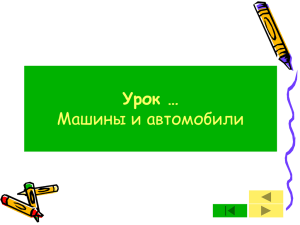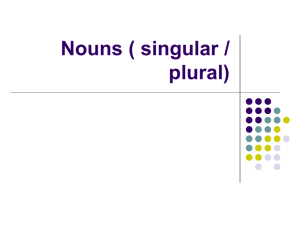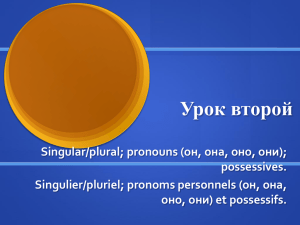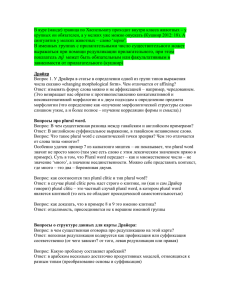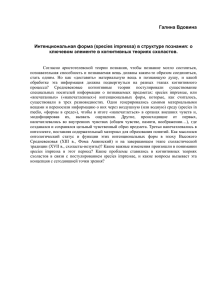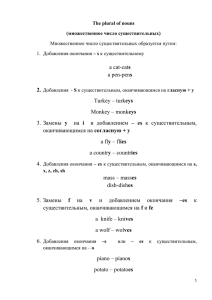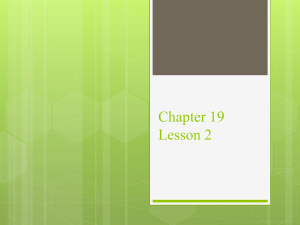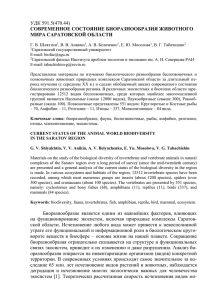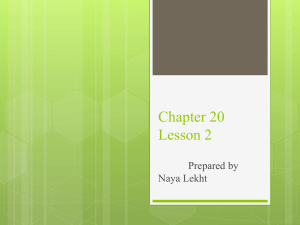The Category of Number of the English Nouns
реклама
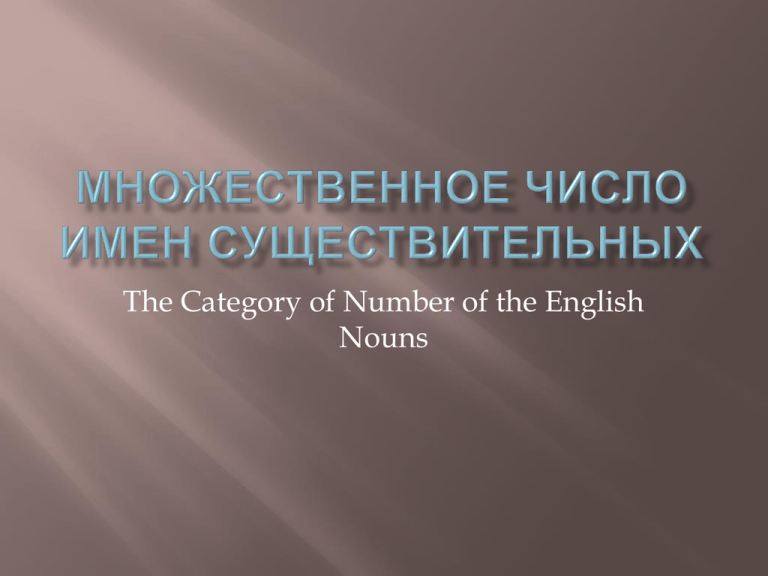
The Category of Number of the English Nouns I. Окончанием –s или –es; -es добавляется к существительным, оканчивающимся на (t)ch, s, ss, sh, x или z: a wish - wishes, a day – days, a bus - buses, a story – stories, a wolf - wolves, a life – lives. A man – men, A woman – women, A child – children, A foot – feet, a goose – geese; a louse – lice, a mouse – mice, a tooth – teeth, A deer – two deer, a sheep – ten sheep, A species – three species, a series – six series, A means – some means, a fish – many fish, A carp – two carp, a trout – five trout. Форма fishes употребляется для обозначения видов рыб: The fishes of the Atlantic. Существительные, обозначающие названия национальностей и оканчивающиеся на –ese, -ss, также не меняют формы во мн. ч.: A Portuguese – ten Portuguese, a Chinese – the Chinese, a Swiss – many Swiss. Большинство слов, заимствованных из греческого и латинского языков, образуют формы мн. ч. по общему правилу, т.е. с помощью окончания – s(es). Однако некоторые из них сохранили и оригинальные окончания. Singular Regular Plural Original Plural cactus cactuses cacti antenna antennas antennae curriculum curriculums curricula index indexes indices appendix appendixes appendices basis basises bases phenomenon phenomenons phenomena 1. Обычно сложные существительные образуют формы мн.ч. прибавлением окончания –(e)s к последнему элементу: a grown-up – grown-ups, a boyfriend – boyfriends, a forget-me-not - forget-me-nots. 2. Слова с –in-law во мн.ч. имеют окончание в первом элементе: fathers-in-law, daughters-in-law. 3. Если в состав существительного входят основы man или woman, то оба элемента имеют формы мн.ч.: a woman-driver – women-drivers, a manservant – menservants. имеют форму либо единственного, либо множественного числа: Invariable Singular information advice money news progress furniture work yeast cream ink linen rubbish leafage weather Invariable Plural clothes contents sweepings glasses odds ends greens customs goods shorts trousers jeans scissors tights pants scales
